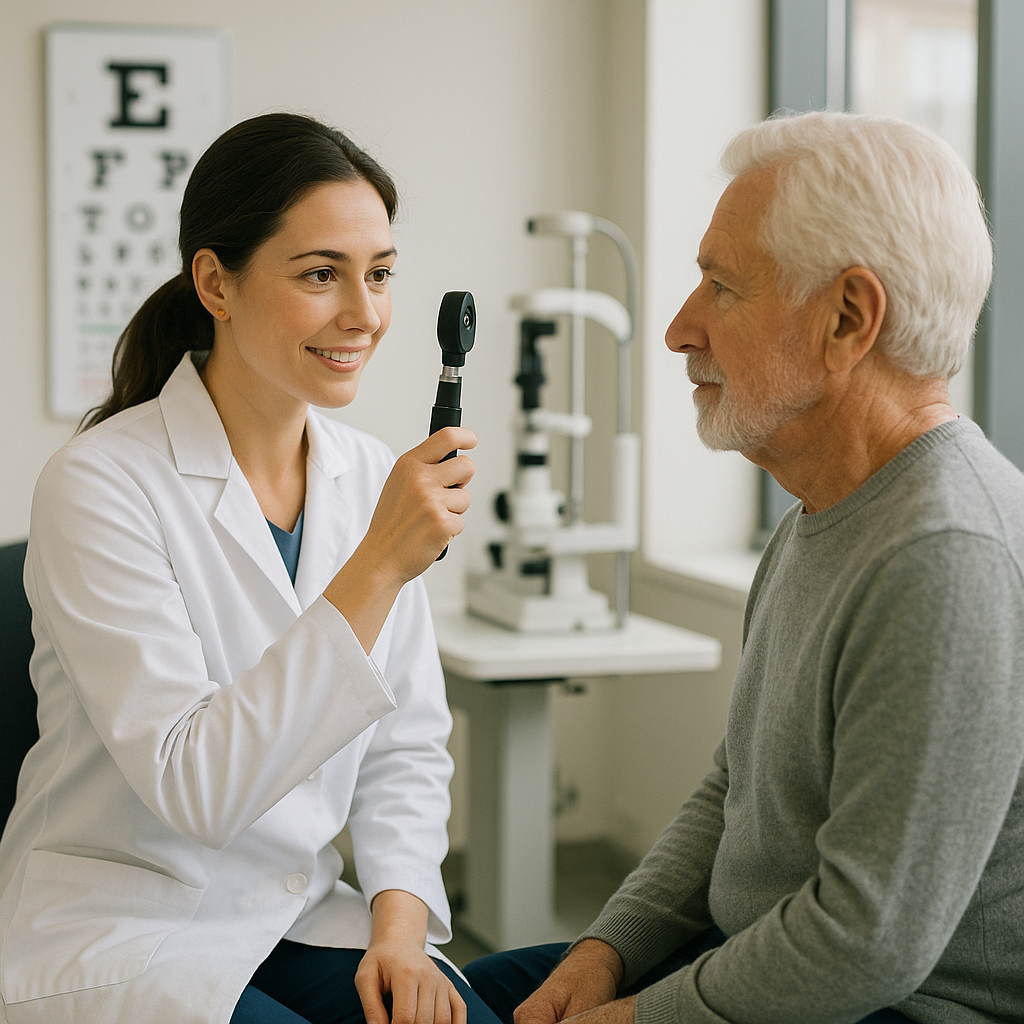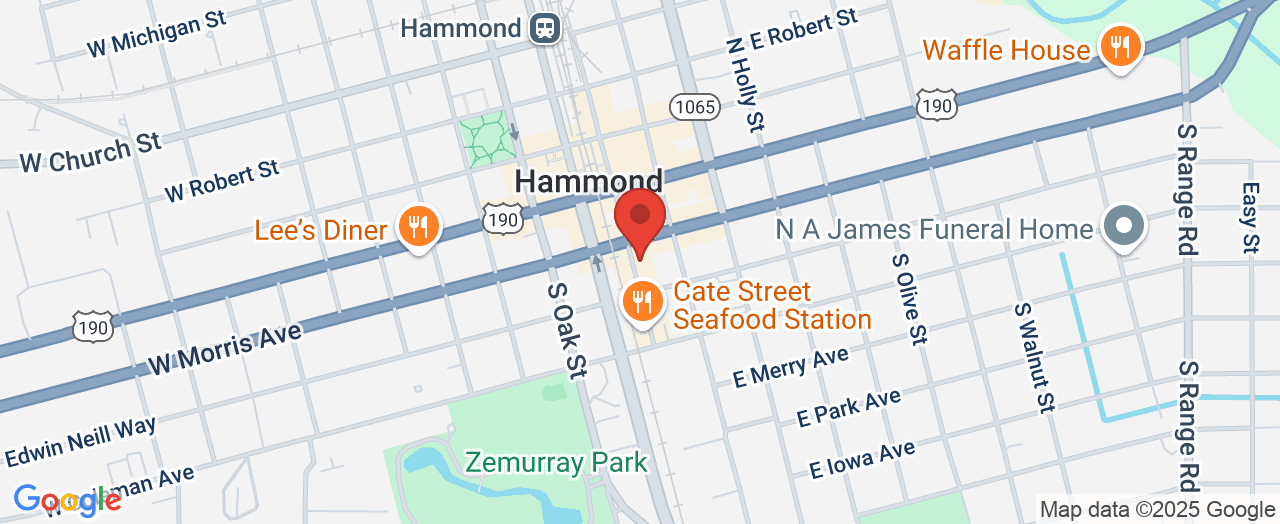
Cate Street Optical
📍 Address: 201 S Cate St C, Hammond, LA 70403, USA
📞 Phone: +1 985-956-7890
🌐 Website: http://www.catestreetoptical.com/
★★★★★
Rating:4.3
Why Eye Care for Seniors is More Critical Than Ever
As we age, our vision becomes one of the most crucial gatekeepers to our independence, safety, and engagement with the world. Shockingly, according to national studies, one out of every three people has some form of vision-reducing eye condition by the age of 65. Yet, many adults underestimate just how interconnected eye health is with daily activities like driving, reading, or enjoying time with family. The storms of blurred vision, eye strain, or discomfort don’t just disrupt the body—they impact quality of life, social engagement, and even mental health.
Eye care is far more than simply updating your prescription for glasses. For seniors, comprehensive vision assessments can prevent life-altering complications—from falls due to poor depth perception, to missed diagnoses of systemic issues signaled first through the eyes, such as diabetes or hypertension. Understanding the secrets behind effective eye care, especially those tailored for senior needs, empowers individuals to protect their independence, comfort, and wellbeing. As we unravel the principles and practical tips of senior eye care, it becomes evident why this knowledge is both liberating and essential at any stage of maturity.
The Foundations of Eye Health: What Every Senior Needs to Know

Eye care, at its core, involves more than routine check-ups; it encompasses a holistic approach to monitoring, maintaining, and improving vision as we age. With natural changes in the eyes—thickening of the lens, reduced tear production, and increased risk of cataracts or glaucoma—staying proactive becomes vital. Understanding which symptoms to monitor, how often to get exams, and what contemporary treatments can offer demystifies a process that often feels overwhelming. Unfortunately, not staying vigilant about these changes can lead to missed warning signs, delayed treatment, and greater risk of irreversible conditions.
Vision correction options like glasses, contact lenses, or specialized treatments may seem familiar, but the senior eye requires extra attention. Glaucoma testing, dry eye management, and tailored advice on reading glasses or sunglasses all play pivotal roles. When seniors aren’t equipped with these facts or neglect regular visits, the potential consequences range from gradual vision loss to social withdrawal due to decreased confidence in navigating the world. An informed, consistent approach to eye care sets the stage for maintaining not only clear vision, but active participation in all aspects of life.
For seniors interested in exploring the full spectrum of available vision services—from routine exams to advanced treatments—it's helpful to review the comprehensive eyecare services offered by Cate Street Optical . This resource outlines the range of solutions designed to address evolving vision needs at every stage of life.

How Comprehensive Eye Care Helps Seniors Stay Independent and Thriving
Expert practices like Cate Street Optical in Hammond, LA, blend comfort, professional care, and tailored solutions for seniors facing age-related vision changes. By emphasizing comprehensive eye exams, ongoing monitoring for conditions like glaucoma, and step-by-step patient education, such optometry services create a support system for preserving sight and personal agency. Central to their approach is a one-on-one clinical philosophy that addresses individual vision needs—whether through new glasses, precise contact lens fittings, or management of chronic dry eyes.
These comprehensive services go beyond detecting changes in vision—they offer seniors a clear path toward maximizing their eyesight and quality of life. Reliable eye care supports daily function: sharper vision means safer navigation around the home, easier reading of medication labels, and less reliance on others for tasks. Personalized attention, such as that provided by dedicated optometrists, ensures that every patient understands their prescription, the purpose behind each test, and practical steps to safeguard their eyes for years to come.
Staying Ahead of Age-Related Eye Conditions: Early Detection and Prevention Strategies
One of the most powerful secrets in senior eye care is the value of early detection and proactive management. Age brings inevitable changes to the eye, but regular check-ups and open dialogue with eye care professionals dramatically lower the risk of progression toward blindness. Practices that prioritize routine glaucoma screenings, assessments for age-related macular degeneration, and tests for diabetic eye health empower seniors by catching subtle issues before they become significant challenges.

Preventive care, including annual or biannual eye exams, tailored nutritional guidance, and practical advice about ultraviolet light protection, further shields aging eyes from avoidable harm. Adopting these preventive strategies can delay or even prevent the onset of common eye diseases, giving individuals a tangible sense of control over their health. High-quality vision care centers make these preventive measures accessible and understandable for every patient, reinforcing the message that healthy vision is attainable throughout one’s senior years.
How Personalized Vision Correction Improves Day-to-Day Living for Seniors
No two pairs of eyes are exactly alike, and that is especially true for seniors whose vision needs may shift rapidly within a year. Personalized solutions—such as individualized fittings for lenses or expert diagnosis of prescription changes—eliminate the frustration that can come from outdated or ill-fitting eyewear. These custom corrections help seniors stay engaged with hobbies, keep up with grandchildren, and enjoy outdoor activities without the distraction or hazard of blurred sight.
Practices that provide one-on-one attention and expert consultations understand the nuances of comfort, fit, and function in eyewear. The result? Improved confidence in everyday interactions, reduced risk of headaches or eye strain, and less anxiety about independent living. This personalized focus, grounded in thorough eye care, makes a meaningful difference in the lives of seniors seeking clarity, comfort, and reassurance as vision changes occur.

Making Eye Care Accessible: Flexible Options for Every Lifestyle
Convenience and accessibility are more than amenities for seniors—they are essential to consistent and effective eye care. Locations that offer flexible appointment scheduling, walk-in availability, and a knowledgeable, approachable staff dismantle traditional barriers to vision health. The assurance that vision insurance and financing options are available further removes the stress from seeking care, allowing seniors to focus on their well-being rather than logistics.
User-friendly systems, such as online forms and appointment booking, improve comfort and reduce the intimidation factor for those who may feel hesitant about medical visits. A supportive environment encourages open communication—seniors are more likely to express concerns or ask questions when they’re greeted by friendly staff and attentive clinicians, leading to better long-term outcomes and satisfaction.
Cate Street Optical’s Patient-First Philosophy for Lifelong Eye Wellness
At Cate Street Optical, the guiding philosophy is rooted in a commitment to personal attention and professional care that transforms the typical eye care experience into a supportive partnership. The optometrists value building relationships with patients—helping them feel understood, informed, and respected throughout every stage of vision care. Rather than offering one-size-fits-all solutions, the team invests in learning about each individual’s history, needs, and goals to deliver precise, effective care that lasts.
The mission centers on making the optical journey both comfortable and convenient. This patient-centered approach doesn’t just foster trust—it ensures that every exam, lens fitting, or follow-up appointment is performed with compassion and expertise. The emphasis on quality, ongoing education, and open communication reaffirms that outstanding eye care—for seniors and all age groups—is a vital investment in lifelong health, dignity, and happiness.
Cate Street Optical continually demonstrates its commitment by staying current with optometric advancements and nurturing an inviting clinic atmosphere. This deep-seated dedication makes them a reliable voice in the community, championing vision health as a cornerstone of senior wellbeing.
When Care Exceeds Expectations: Warmth and Expertise in Patient Testimonials
The true measure of any eye care provider can often be found in the experiences of those they serve. Patients frequently express how exceptional attention, kindness, and communication during appointments create comfort and ease during what could otherwise be a stressful process. One recent testimonial stands out for its heartfelt appreciation of the Cate Street Optical team’s warmth and expertise:
The staff is super friendly and helpful, they make you feel like they were just waiting for you to arrive and couldn't be happier about it. Dr. Lamonica has a great personality and explains everything every step of the way. I highly recommend visiting Cate Street Optical!
Such candid feedback reflects not just the technical skill of an eye care practice, but also the crucial emotional reassurance provided to seniors exploring the path to healthier vision. When patients describe a sense of welcome, clarity, and relief following their visits, it reaffirms the life-enhancing results that come from proactive, compassionate, and expert-guided eye care.
Guarding Vision, Gaining Independence: The Vital Role of Eye Care as You Age
Lifelong vision health is no accident—it is the product of vigilant attention, timely care, and expert guidance tailored to each new chapter in life. As this article has revealed, comprehensive eye care empowers seniors to safeguard not only their sight but also their sense of independence, safety, and joy. The insights and patient-first approaches cultivated by leaders in optometry, such as Cate Street Optical, continue to set new standards in how senior vision is preserved and enhanced.
Ultimately, embracing modern strategies in eye care prepares seniors to meet every sunrise with confidence. From preventive screenings to supportive staff and precise corrective lenses, every step is a shield against the preventable challenges of age-related vision loss. Expert-led practices remain at the forefront, ensuring seniors reap the full rewards of proactive, compassionate, and modern eye care.
A Special Note on Eye Care for Seniors from Dr. Tom Hand of Cate Street Optical
One of the lesser known aspects of optometry is what is called Low vision. This is anyone who has visually limited abilities that require special care. These patients could be limited due to stroke, age related macular degeneration, glaucoma, retinal hole, or any other number of pathology or retinopathy. With low vision we seek to work with patients around areas in which they have difficulty in their every day lives. With the use of all the modern low vision aids we are able to get patients back to living their lives. Magnifiers and telescopes help patients read up close as well as at a distance. Certain tools even have the ability to take small text and with a quick scan read it out loud for the patient. Just because a patient has reduced vision does not mean they have to settle with the way things are. By using these tools and working closely with ocupational therapists we can even work to get visually impaired patients back on the road driving and living independently. Nothing is more rewarding than helping low vision patients regain back parts of their life they thought were behind them.
If you’re ready to take your understanding of eye health even further, consider exploring the Vision Therapy FAQ from Cate Street Optical. This resource delves into advanced techniques and answers common questions about vision therapy, offering valuable insights for those seeking to optimize their visual performance and overall well-being. Whether you’re curious about specialized treatments or want to empower yourself with the latest knowledge, this guide is an excellent next step. Discover how proactive vision care can transform not just your eyesight, but your quality of life for years to come.
Contact the Experts at Cate Street Optical
If you’d like to learn more about how eye care could benefit your vision and overall well-being, contact the team at Cate Street Optical.
📍 Address: 201 S Cate St C, Hammond, LA 70403, USA
📞 Phone: +1 985-956-7890
🌐 Website: http://www.catestreetoptical.com/
Cate Street Optical Location and Availability
🕒 Hours of Operation:
📅 Monday: 8:00 AM – 2:00 PM
📅 Tuesday: 8:00 AM – 2:00 PM
📅 Wednesday: 8:00 AM – 2:00 PM
📅 Thursday: 8:00 AM – 2:00 PM
📅 Friday: 8:00 AM – 2:00 PM
📅 Saturday: 8:00 AM – 2:00 PM
📅 Sunday: ❌ Closed

 Add Row
Add Row  Add
Add 



Write A Comment